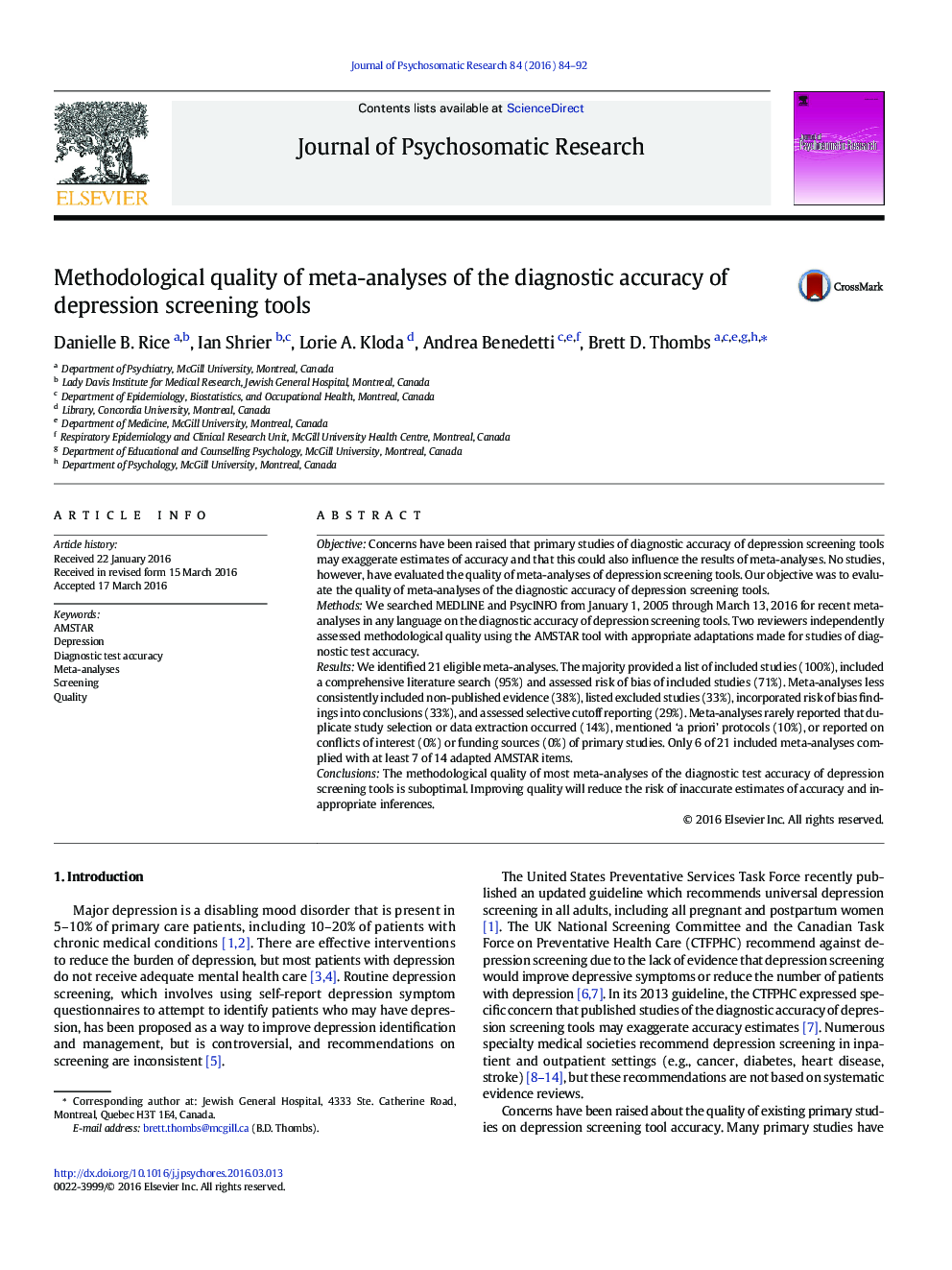| کد مقاله | کد نشریه | سال انتشار | مقاله انگلیسی | نسخه تمام متن |
|---|---|---|---|---|
| 949145 | 1475911 | 2016 | 9 صفحه PDF | دانلود رایگان |
• The quality of meta-analyses of depression screening tool accuracy was evaluated.
• Most meta-analyses were of suboptimal quality.
• Only 6 of 21 meta-analyses adhered to at least 50% of quality standard items.
• Improving quality will reduce risk of inaccurate estimates and bias.
• Quality assessment tools for diagnostic test accuracy systematic reviews are needed.
ObjectiveConcerns have been raised that primary studies of diagnostic accuracy of depression screening tools may exaggerate estimates of accuracy and that this could also influence the results of meta-analyses. No studies, however, have evaluated the quality of meta-analyses of depression screening tools. Our objective was to evaluate the quality of meta-analyses of the diagnostic accuracy of depression screening tools.MethodsWe searched MEDLINE and PsycINFO from January 1, 2005 through March 13, 2016 for recent meta-analyses in any language on the diagnostic accuracy of depression screening tools. Two reviewers independently assessed methodological quality using the AMSTAR tool with appropriate adaptations made for studies of diagnostic test accuracy.ResultsWe identified 21 eligible meta-analyses. The majority provided a list of included studies (100%), included a comprehensive literature search (95%) and assessed risk of bias of included studies (71%). Meta-analyses less consistently included non-published evidence (38%), listed excluded studies (33%), incorporated risk of bias findings into conclusions (33%), and assessed selective cutoff reporting (29%). Meta-analyses rarely reported that duplicate study selection or data extraction occurred (14%), mentioned ‘a priori’ protocols (10%), or reported on conflicts of interest (0%) or funding sources (0%) of primary studies. Only 6 of 21 included meta-analyses complied with at least 7 of 14 adapted AMSTAR items.ConclusionsThe methodological quality of most meta-analyses of the diagnostic test accuracy of depression screening tools is suboptimal. Improving quality will reduce the risk of inaccurate estimates of accuracy and inappropriate inferences.
Journal: Journal of Psychosomatic Research - Volume 84, May 2016, Pages 84–92
